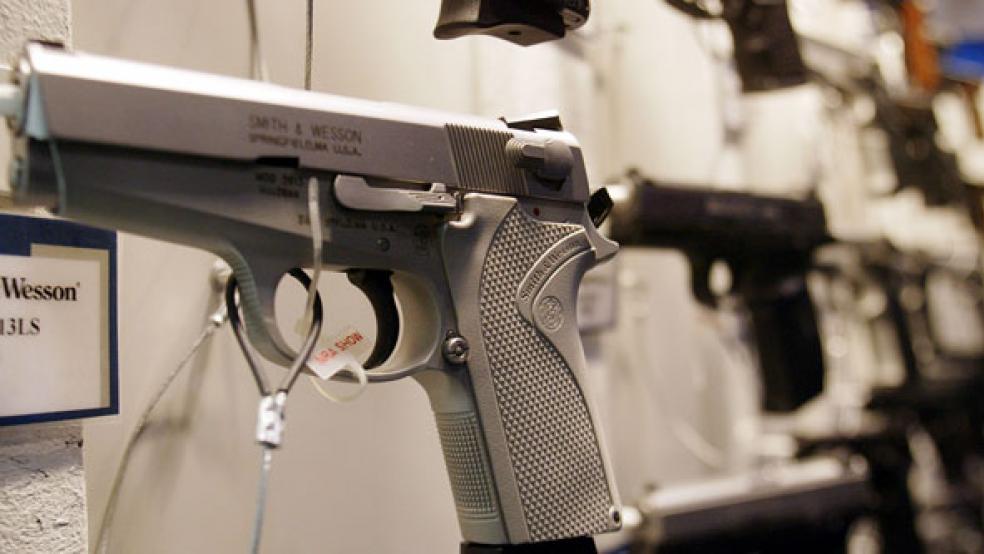The Senate returned home this week for recess, after having defied public opinion and batted down universal background checks for gun buyers earlier this month.
It was a big defeat for President Obama, who brought to Capitol Hill the parents of the children killed in a mass shooting last December at Sandy Hook Elementary School in Newtown, Conn. Their pleas for action fell on sympathetic but deaf ears, unable to compete against the National Rifle Association and a conviction that additional steps to control guns would violate the Second Amendment.
On April 17, the criminal and mental background check bill fell short of the 60-vote supermajority needed to move forward in the Senate—with a final tally of 54 to 46. The gun show loophole will continue and the FBI database used in the existing background checks remains incomplete.

So, will voters respond by rejecting any of the senators who blocked the measure?
Maybe.
Public Policy Polling sparked hope among gun control advocates that at least five senators would face a voter backlash.
In a survey released Monday by the North Carolina-based firm, Sen. Jeff Flake, R-Ariz., recorded a dismal 32 percent approval rating. The popularity of Alaska senators Lisa Murkowski, a Republican, and Mark Begich, a Democrat, also took a tumble. Support for Sen. Rob Portman, R-Ohio, has dropped a net 18 points over the past six months, such that his approval rating now rests at 26 percent. And backing from independent voters for Nevada Republican Dean Heller has steadily eroded.
“The background checks vote is a rare one that really is causing these Senators trouble back home,” said Dean Debnam, president of Public Policy Polling. “All five of these senators, as well as [New Hampshire Republican] Kelly Ayotte, have seen their approval numbers decline in the wake of this vote.”
The polling isn’t that cut-and-dry.
Arizona’s Flake looks like he is in trouble, but he doesn’t face re-election until 2018—a lifetime away in U.S. politics.
In Alaska, voters might not make gun control their top priority in the next election. Begich is up for a second term in 2014. In Public Policy Polling survey, 58 percent of respondents said his “nay” on background checks either made “no difference” or increased the likelihood Begich would get their votes. A similar pattern existed for Murkowski.
Ohio’s Portman would face re-election in 2016. Most of those surveyed—40 percent—by Public Policy Polling were “not sure” about his job performance. Nor is it possible to explain any swings in his approval rating solely through gun control, since Portman disclosed that his son was homosexual and announced his support for gay marriage.
In Nevada, voters still had a favorable impression of Heller, 44 percent to 41 percent, despite the loss of support from independents.
The Gallup Organization issued a poll on Monday suggesting that voters strongly support background checks, but they’re a bit reluctant to punish lawmakers who refuse to enact stricter vetting for gun buyers.
In the survey conducted last week, 83 percent of Americans said they would vote for background checks, down slightly from 91 percent in January. But when asked whether the Senate should have passed background checks, only 65 percent answered that it should have.
So the public welcomes the concept of background checks, but they’re less certain about the failed Senate bill sponsored by West Virginia Democrat Joseph Manchin III and Pennsylvania Republican Pat Toomey.
Gallup concluded, “The reasons for this difference are not entirely clear.”




